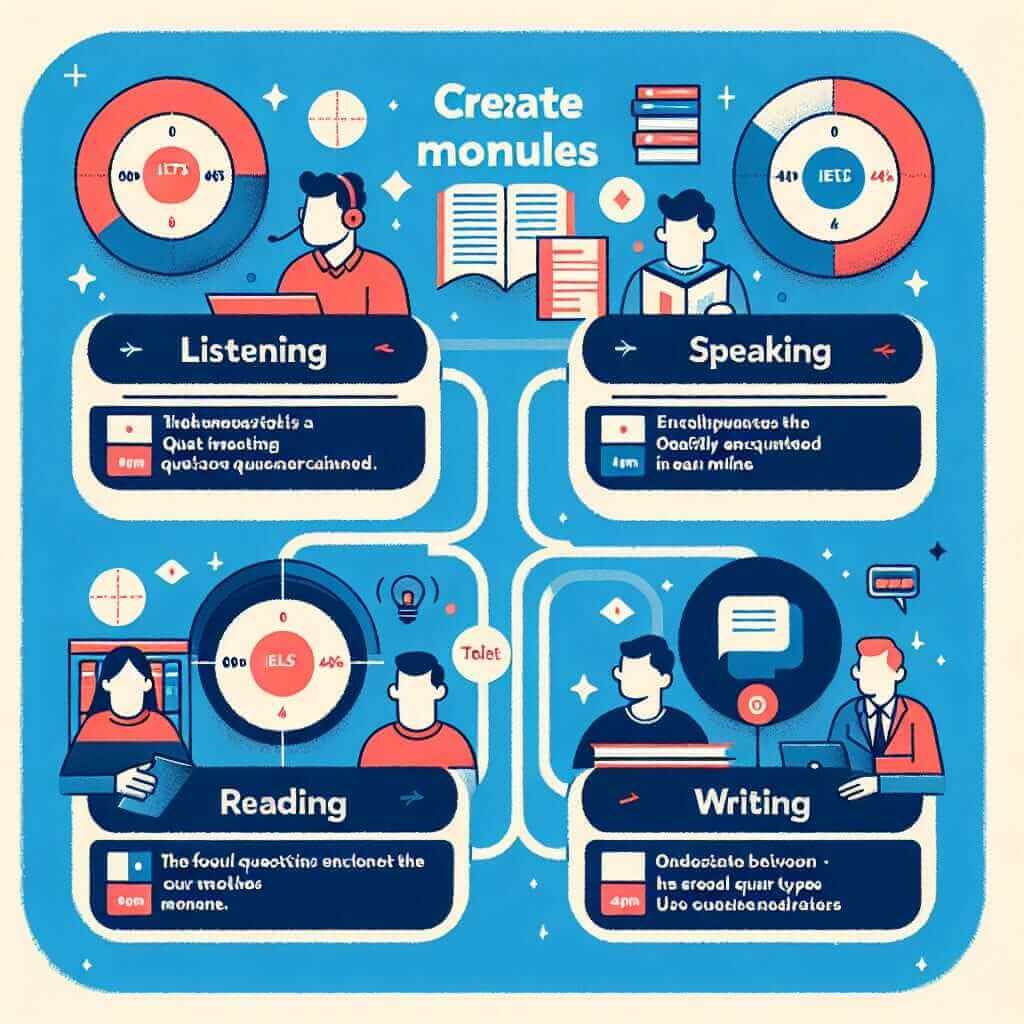Passing the IELTS exam is a significant accomplishment, opening doors to academic and professional opportunities worldwide. Whether you’re aiming for university admission or career advancement, achieving your desired IELTS score requires focused preparation and a strategic approach.
As an IELTS instructor with over 20 years of experience, I’ve witnessed firsthand the challenges and triumphs students experience on their IELTS journeys. In this comprehensive guide, we’ll delve into proven strategies and practical tips to help you conquer the IELTS test in 2018 and beyond.
Understanding the IELTS Exam
Before diving into preparation strategies, it’s crucial to understand the structure and assessment criteria of the IELTS exam. The IELTS, or International English Language Testing System, evaluates your English language proficiency across four modules: Listening, Reading, Writing, and Speaking.
IELTS Modules:
- Listening: This module assesses your ability to understand spoken English in various contexts, from everyday conversations to academic lectures.
- Reading: You’ll be tested on your comprehension of different types of written English, including articles, reports, and academic texts.
- Writing: This module evaluates your ability to express yourself clearly and cohesively in written English, covering tasks like essay writing and report summarizing.
- Speaking: You’ll engage in a face-to-face interview with a certified examiner, who will assess your fluency, pronunciation, grammar, and vocabulary.

Effective Preparation Strategies
Successfully passing the IELTS requires a combination of targeted practice and effective study habits. Here’s a breakdown of essential steps to guide your preparation:
1. Identify Your Strengths and Weaknesses
Begin by taking a practice IELTS test to gauge your current proficiency level. This will pinpoint your strengths and areas that need improvement, allowing you to tailor your study plan accordingly.
2. Master IELTS Test Format and Timing
Familiarize yourself thoroughly with the structure of each IELTS module, including the types of questions, time limits, and marking criteria. This will enable you to approach the test with confidence and manage your time effectively.
3. Develop a Realistic Study Plan
Create a structured study schedule that allocates sufficient time to each module based on your individual needs. Consistency is key; aim for regular study sessions rather than cramming close to the exam date.
4. Enhance Your Vocabulary and Grammar
A strong command of English vocabulary and grammar is essential for success in all IELTS modules. Dedicate time each day to learning new words and reviewing grammar rules, focusing on areas relevant to the IELTS test.
5. Practice Regularly with Authentic Materials
Utilize authentic IELTS practice materials, such as past papers and sample answers, to accustom yourself to the exam format and level of difficulty. This will also help you identify common question types and refine your exam technique.
6. Focus on Coherence and Cohesion
In the Writing and Speaking modules, demonstrating clear and logical connections between ideas is crucial. Practice using linking words, transition phrases, and cohesive devices to enhance the flow and clarity of your responses.
7. Develop Time Management Skills
Time management is critical during the IELTS exam. During your practice sessions, simulate exam conditions by setting timers to ensure you can complete each task within the allotted time frame.
8. Seek Feedback and Guidance
Having your writing and speaking assessed by an experienced IELTS instructor can provide valuable insights and identify areas for improvement. Don’t hesitate to seek feedback and guidance from qualified professionals.
Example: Analyzing an IELTS Speaking Cue Card
Let’s examine an example of an IELTS Speaking cue card and how to approach it strategically:
Describe a time you had to wait in a long line/queue.
You should say:
- Where you were
- Why you had to wait
- How long you waited
- And explain how you felt while waiting.
Breakdown and Tips:
- Context: This cue card focuses on narrating a personal experience.
- Key Points: Ensure you address all bullet points clearly and provide sufficient detail to make your story engaging.
- Vocabulary: Utilize vocabulary related to waiting (e.g., queue, patiently, anticipation, restless).
- Grammar: Demonstrate a range of grammatical structures, such as past tenses and descriptive language.
- Fluency: Practice speaking your response aloud to improve fluency and naturalness.
Conclusion
Passing the IELTS exam requires a combination of strategic preparation, consistent effort, and effective exam technique. By following these tips, practicing regularly, and seeking expert guidance when needed, you can enhance your English language skills and achieve your desired IELTS score. Remember, the key to success lies in structured preparation, focused practice, and the belief in your abilities.